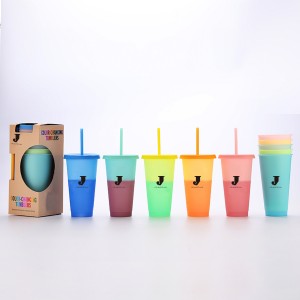Water is an important resource for all living things, and the consumption of water, especially while traveling, has led to the increasing popularity of water bottles. However, the bottles are being discarded at an alarming rate, raising concerns about the environmental impact. This blog aims to shed light on the important role recycled water bottles play in protecting the planet, highlighting its positive impact on reducing waste, conserving resources and curbing pollution.
reduce waste:
One of the most significant benefits of recycling water bottles is reducing waste in landfills and oceans. Every year, millions of water bottles are disposed of improperly and take hundreds of years to fully decompose. By recycling, we divert these bottles from landfill, minimizing their impact on the environment. The process includes collecting, sorting, cleaning, and transforming bottles into new products, effectively extending their useful life. Recycling reduces the need for raw materials, energy and resources to produce new bottles, thereby significantly reducing pressure on the planet.
save resources:
Recycling water bottles saves valuable resources, including water and fossil fuels. It takes millions of gallons of water to produce one plastic bottle, leading to the depletion of this precious resource. By recycling, we can reduce the need for fresh water and divert it to more critical uses such as agriculture or human consumption. Additionally, plastic bottles are primarily made from petroleum, a non-renewable fossil fuel. By recycling them, we can indirectly reduce our dependence on fossil fuels, which are a major cause of climate change and air pollution.
To curb pollution:
Plastic pollution has become a global crisis, with water bottles being one of the main sources of pollution. If not handled properly, these bottles can find their way into our rivers, oceans and natural habitats, causing serious harm to wildlife and ecosystems. Recycling water bottles can help alleviate this problem by reducing the amount of plastic waste that ends up in the environment. It also helps reduce the energy and emissions associated with the production and transportation of new bottles, contributing to cleaner air and a healthier planet.
Promote circular economy:
Recycling water bottles is a key step towards creating a circular economy, where materials can be continuously reused, reducing the need for resource extraction and reducing waste generation. By participating in recycling programs and selecting products made from recycled materials, we support sustainable ecosystems and promote economic growth while minimizing ecological harm. Not only is this good for the environment, it also spurs job creation and promotes innovation in the recycling industry.
How can you contribute?
Now that we understand the importance of recycling water bottles, it’s crucial to take action individually and collectively. Start by implementing simple practices like properly sorting recyclables, using designated recycling bins and promoting the benefits of recycling. Support companies that use recycled materials in their packaging, and choose reusable water bottles instead of disposable ones. Encourage schools, workplaces and communities to establish recycling programs that make recycling facilities easily accessible to everyone.
in conclusion:
Water bottles have become an integral part of our daily lives and it is our responsibility to ensure that their production and disposal are handled responsibly. Recycling water bottles is an effective strategy to eliminate waste, conserve resources and reduce pollution. By adopting recycling practices and cultivating an eco-conscious lifestyle, together we can contribute to a greener, more sustainable future while addressing the critical challenges facing our planet. Remember, every bottle recycled is a step towards protecting the environment for future generations.
Post time: Nov-01-2023
